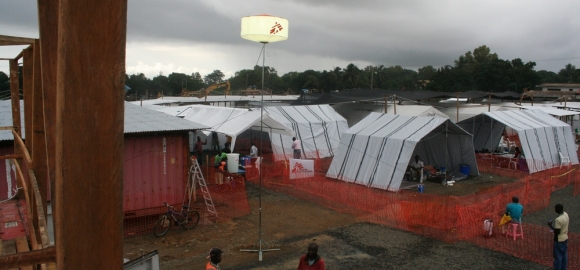Total Case Count: 5864 with 2811 deaths
US Congress Moves Forward:
The House Committee on Appropriations approved of President Obama’s plan to use war funds to pay for the US response to Ebola. They do want some more detail but the bipartisan effort is full speed ahead.
Vaccine and Drug Update:
Inovio Pharmaceuticals plan to initiate human testing of a DNA-based vaccine for Ebola virus early in 2015. During preclinical testing the Ebola vaccine protected all vaccinated guinea pigs and mice from death after exposure to Ebola. This indicates a high likelihood that politicians will do well with the vaccine but we do not know its effect on normal individuals.
US Department of Defense has funded two companies developing drug therapies for Ebola in addition to another company working on a vaccine.
Mapp Biopharmaceutical is to develop and manufacture ZMapp, a drug that may be effective in early stages of the disease. ZMapp is made up of three human monoclonal antibodies first tested this year and credited with saving lives. Using genetic engineering, the antibodies against the virus was found to reduce symptoms when tested in monkeys in 2012. This drug was used in the first two patients evacuated from West Africa to the US and is partially credited with saving their lives. The concern in West African nations is expressed by Dr. Salim Abdool Karim (director of an AIDS research center in South Africa) “it would have ben front page screaming headline: ‘Africans used as guinea pigs for America drug company’s medicine.'” Not everyone who has received ZMapp has survived – including Dr. Abraham Borbor, a Liberian doctor and deputy chief physician at Liberia’s largest hospital, who died on August 25th.
Quarantine Isn’t An Answer:
Liberia has resorted to house quarantine, as there are not enough treatment centers to take care of all the Ebola victims. Thus far over 3000 of the victims come from Liberia. When Ebola victims are kept at home they infect family members, neighbors, and volunteers who care for them – but are not equipped with protective isolation. Less than 20 percent of the victims in Liberia are being cared for in proper facilities meaning Ebola will continue to spread.
Tens of thousands of people are trapped in a slum in Liberia’s capital, Monrovia after officials put the neighborhood under strict quarantine.
Treatment Centers:

Largest Treatment Center in Monrovia from Doctors without Borders. Photo courtesy of Doctors without Borders – please donate to this organization.
US Military will build as many as 17 treatment centers but it is unclear as to who will run them. Local health care is saturated, and it will take a multinational effort to run and care for the patients.
The largest treatment center has been opened by Doctors without Borders in Monrovia (capital) – this is an organization worth donating to (link here).
US Update:
Calculated risk of Ebola entering the US without knowledge is now estimated at 25% by the end of 2014. No confirmed cases of Ebola have been reported in the US. Air travel of people who come from west African nations does not include screening for Ebola or even questioning about symptoms. Bush meat is still brought in illegally and is a source of the virus.
CDC recently returned a staff member from West Africa by charter after there was contact with an international worker that tested positive for Ebola. This worker is not sick, nor has signs of Ebola, but is being kept in isolation.
What Can You Do:
Drug companies are working hard. Best thing is to donate to those organizations that are providing treatment centers. Our suggestion is Doctors Without Borders – as they are a non-profit organization and working hard in the field. Providing treatment centers is the best way to stop the spread of this deadly virus. To Donate go to their site – link is here.
